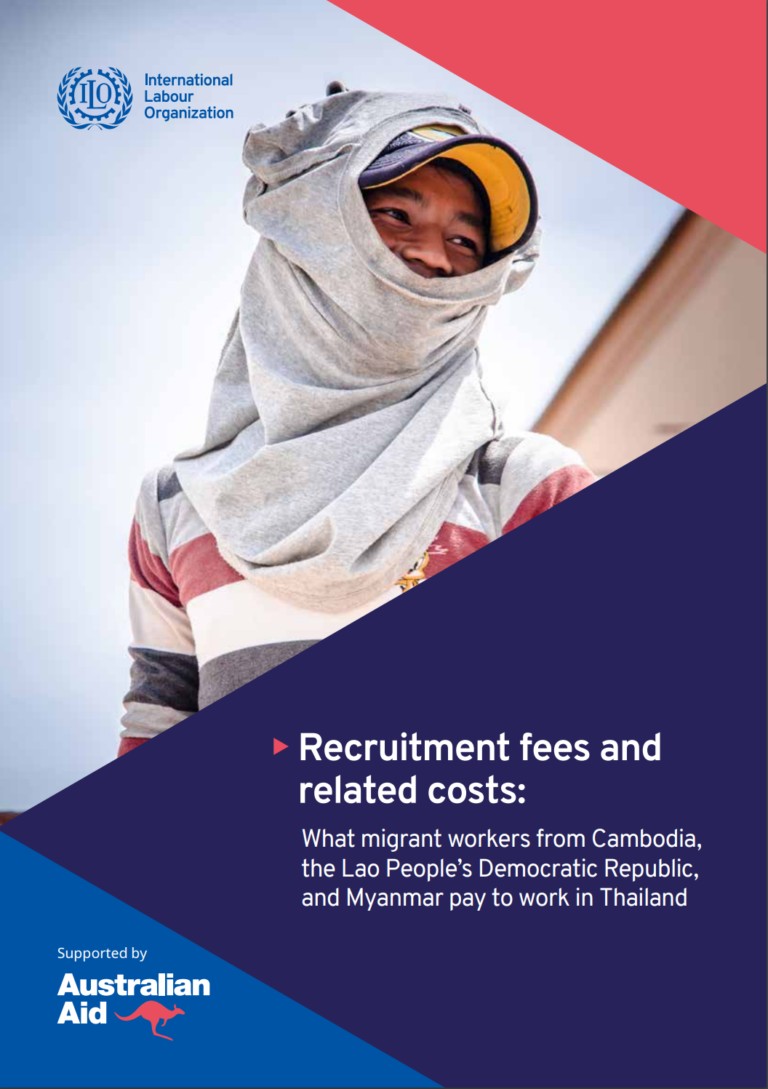Thailand has a long history of labour migration, initially as a country of origin, and more recently as a destination country. Today, Thailand is host to the largest number of migrant workers of all ASEAN member states, with approximately 2.8 million documented, low-skilled, migrant workers from Cambodia, Lao PDR and Myanmar.
This study focuses on analysing the recruitment fees and related costs paid by low-skilled migrant workers from Cambodia, the Lao People’s Democratic Republic, and Myanmar working in Thailand in the agricultural and construction sectors or as domestic workers. It also relates these costs to other aspects of the employment of migrant workers, such as on their employment conditions and access to labour rights, among others. The study captures both documented and undocumented male and female migrant workers, as the costs between these groups can vary significantly.

